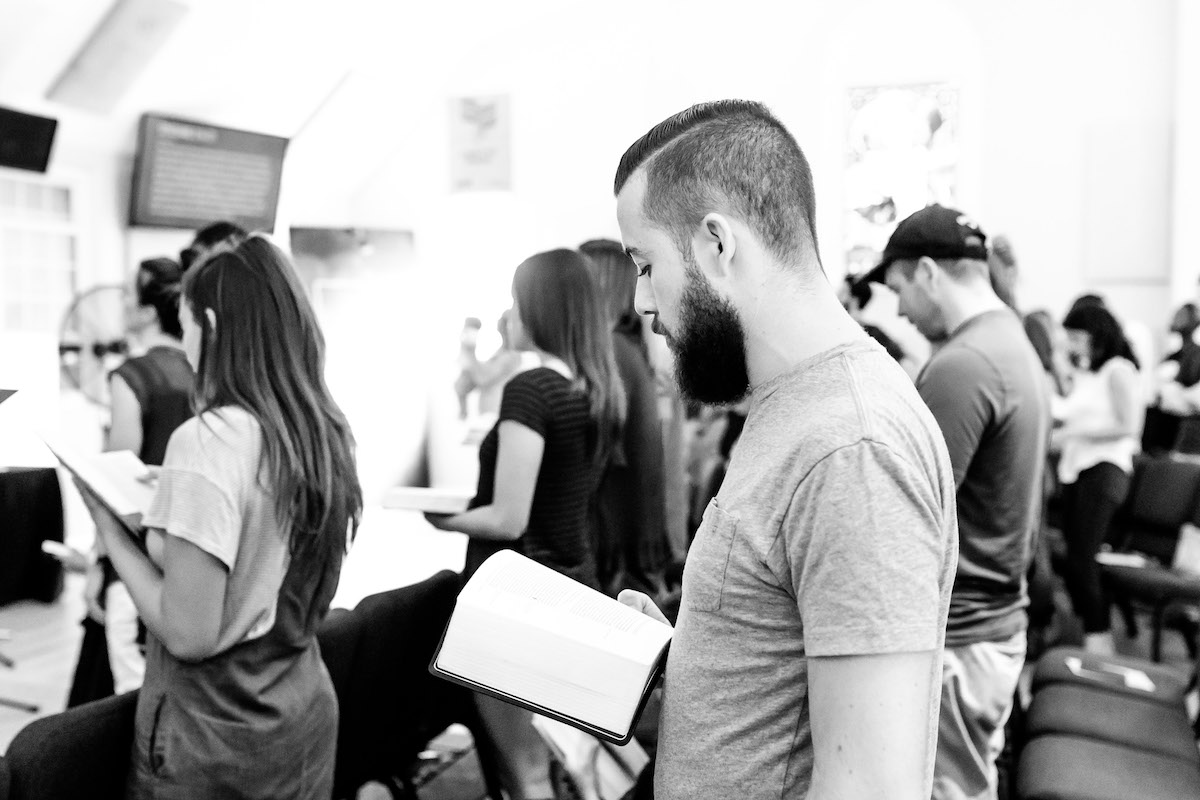“The Christianity we’ve made is a pretty easy place to hide from Christ.” –Ray Ortlund
This quote describes so much of my Christian experience. I grew up in a more legalistic denomination where everyone dressed up on Sundays and pretended to be perfect. We never heard of drama, difficulty, or struggle—at least not until something blew up. My own family was part of this. On the outside, we were a visible part of the church. My dad was an elder, and my mom volunteered everywhere. We were at every service playing the perfect Christian family. But behind the scenes, things were broken. My parent’s marriage was headed toward disaster. But there was nothing they could do about it because, in our church, you didn’t come forward and say you were struggling, especially when you were well-known and visible in the church. So it was all kept inside and continued to fester until it ended in tragedy.
This is how many people experience church—it is a place where religious (in other words, “good”) people gather together. Weaknesses and struggles are hidden out of fear of what others might think, and in doing so we become the type of whitewashed tombs Jesus spoke of: polished on the outside and dying on the inside.
Sadly, in years past, I carried this same thought process into the pulpit. I was afraid to share struggles or difficult experiences out of fear that the people in the church would not see me as someone worth following. I felt a pressure to be some sort of polished version of me that is somehow worthy of being heard. But this is so antithetical to the gospel. It teaches your congregation that the result of discipleship is someone who no longer needs grace, and no longer has to depend on Jesus.
Of course, that’s not possible for pastors or for the people in our congregations, so we all end up pretending. We hide our weaknesses, put on our Sunday best, and play church. We cover our wounds and hide our struggles. We try to pretend that we are all whole and have no need of a physician, and in the end, no one gets better.
But what if church was something different?
Consider the story of the man with the withered hand in Acts 3. In a culture where birth abnormalities were often viewed as judgment for sin, this man would not only carry a physical weakness but guilt and shame from the pharisaical religious system of which he was a part. His life would likely be characterized by hiding. And “church” is not a place he can go for healing. The religious leaders in the synagogue are more concerned with keeping up the appearance of purity than with mercy for their brother. But it is there that Jesus calls this man forward saying, “Stretch out your arm.” This man is called to bring his weakness to Jesus in the presence of everyone, and trust that the grace and call of Jesus are better. In the end, he is made whole.
What if our churches were places where people could come and trust Jesus with their weakness and struggles, and where manmade religious barriers or attitudes didn’t separate people from the grace and mercy of Jesus? What if instead of pretending to be whole, we modeled total dependency on Christ? What if people saw their leaders leaning on Jesus and His grace? What if rather than hiding our failures and weaknesses, we used our stories to demonstrate how to lean on Christ in every area of life?
That transition was a powerful one for me and for our church. And here’s how it happened and is continuing to happen:
- I had to understand my own story
I had to understand how events in my life, some tragic and significant, had affected and were still affecting me, and how the grace of Jesus covered and set me free. I spent time with a well-trained gospel counselor who helped me understand how events of my life affected me and how the gospel effectively applied to my life. I saw how my striving to be everyone to everyone was born out of my upbringing. It was my own effort to save myself and be a savior for others instead of trusting in the salvation Jesus had already given me. Gospel culture starts with the pastor. - I had to trust God with my story and share it with others
I once heard Ray Ortlund say, “If you are so good at Christianity that you need Jesus less than when you began, then you have completely lost your way. But if you find yourself needing him more today than when you started, your Christianity is…right where it should be.” We need to destroy the holy-man syndrome in our churches and model for our people what it looks like to depend on Jesus for salvation and sanctification. We must stop pretending we aren’t still broken and stop thinking we are the goal and instead point people to Jesus. - Create opportunities for others to come to Jesus
I think this is where gospel-centered community is so important. Encouraging others to join missional communities where they can build relationships and walk through life with one another, learning together to be open and transparent and to lean on Christ together can be so transforming and life giving to the church. - Train up other gospel-dependant leaders
I remember having a discussion with a potential elder some years back. I asked him about his past, confession of sin, and things God has delivered him from. He responded, “Those things are always between me and God. I never share things like that with anyone, not even my wife.” This misses the idea of the priesthood of believers and only furthers the facade of fake Christianity in our churches. - Redefine your wins
The overall size of a church cannot be your win or your health indicator. Discipleship must be celebrated in your church. Rather than celebrating attendance, celebrate gospel victories in the lives of your congregations. Find ways to share those wins and celebrate them with the whole church body.








